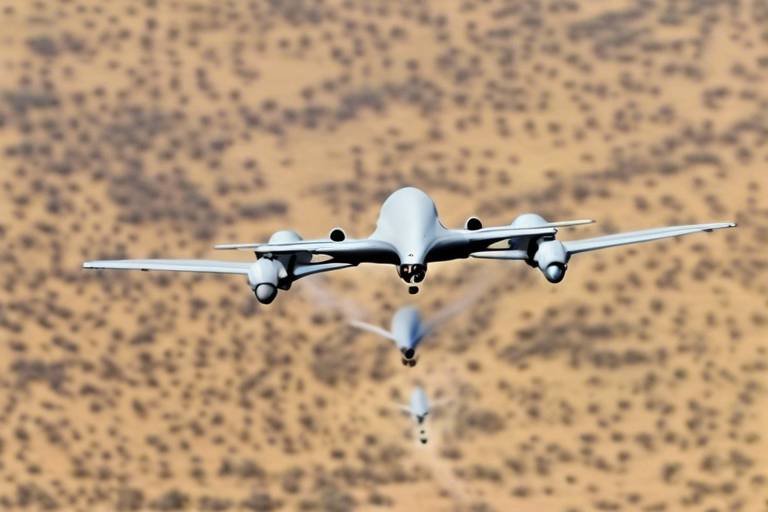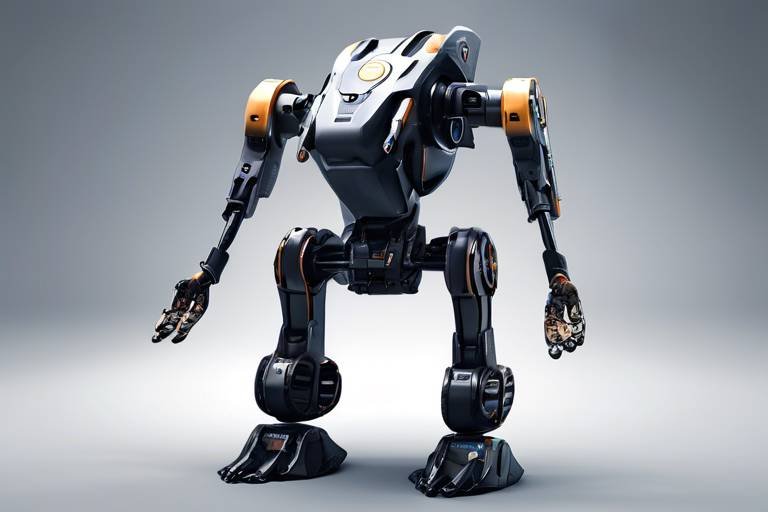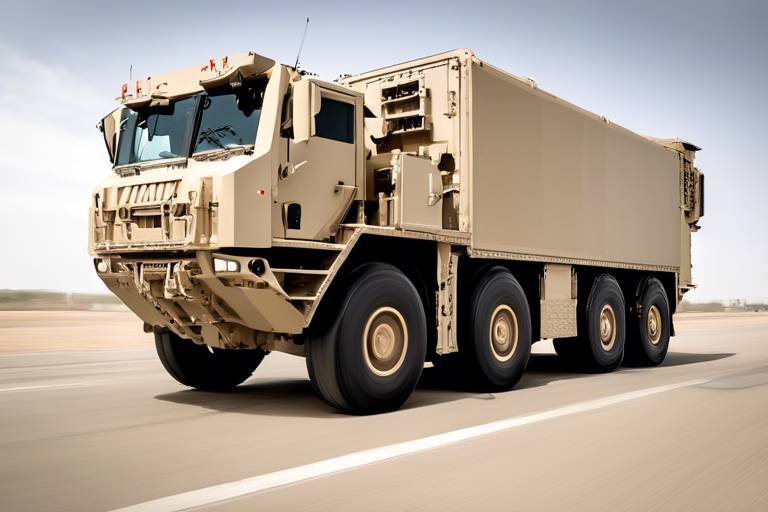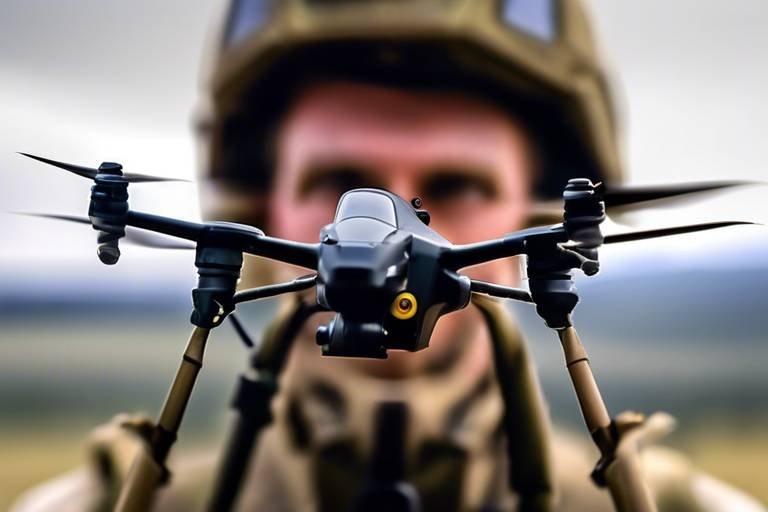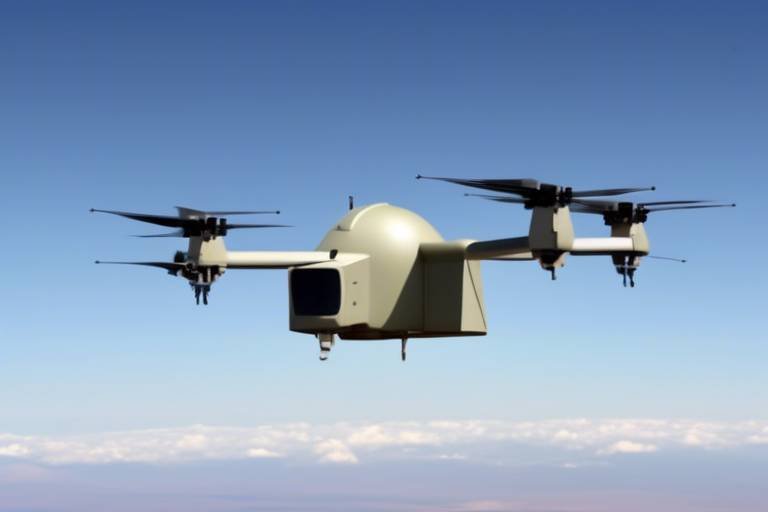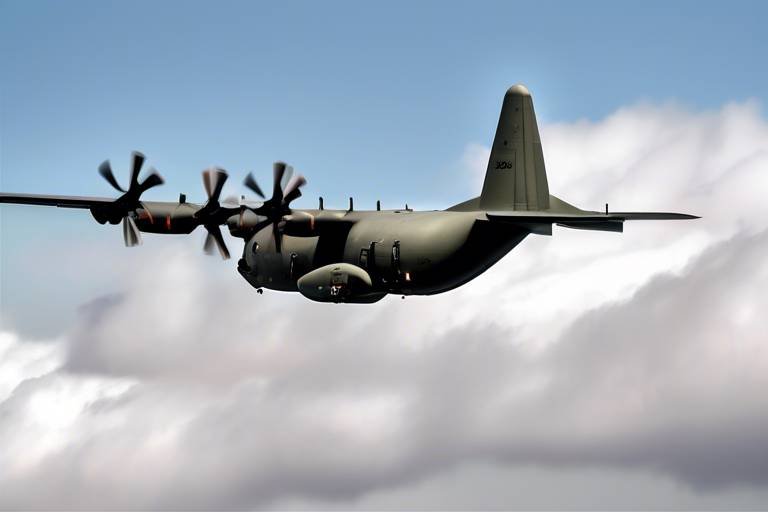Ethical Considerations in Autonomous Warfare
The rapid advancement of technology has ushered in a new era of warfare, one characterized by the rise of autonomous systems that can make decisions without human intervention. This shift raises profound ethical dilemmas that challenge our understanding of accountability, decision-making, and the moral responsibilities of nations deploying such technologies. As we delve into the world of autonomous warfare, we must grapple with questions that could redefine the very essence of conflict and morality. How do we ensure that machines, devoid of human emotion and ethical reasoning, make decisions that align with our values? What happens when a machine decides who lives and who dies? These questions are not just theoretical; they demand urgent attention as military forces around the globe increasingly integrate autonomous systems into their arsenals.
At the heart of this discussion lies the concept of accountability. If an autonomous weapon system makes a decision that results in civilian casualties, who is held responsible? Is it the programmer who wrote the code, the military commander who deployed the system, or the nation that created it? The ambiguity surrounding responsibility in autonomous warfare complicates the legal and moral landscape, leaving us to ponder the implications of removing human judgment from the battlefield.
Moreover, the implications of autonomous warfare extend beyond accountability. The traditional paradigms of warfare are being challenged as machines take on roles previously reserved for humans. This raises critical questions about the nature of warfare itself. Are we entering an age where machines can wage war more efficiently than humans, or are we sacrificing the ethical considerations that come with human decision-making? As we explore these themes, we must also consider how existing legal frameworks are struggling to keep pace with technological advancements.
The ethical considerations surrounding autonomous warfare are not just about the technology itself; they are about the values we hold as a society. As we stand on the brink of this new frontier, we must confront the uncomfortable truths about our reliance on technology in warfare and the moral implications of allowing machines to make life-and-death decisions. The future of warfare may depend on our ability to navigate these ethical dilemmas and establish a framework that balances innovation with accountability and humanity.
- What is autonomous warfare? Autonomous warfare refers to military operations conducted by systems that can operate independently without human intervention, making critical decisions in combat scenarios.
- Who is responsible for the actions of autonomous weapons? The question of accountability is complex, involving programmers, military leaders, and nations, making it challenging to assign liability for decisions made by autonomous systems.
- How does international humanitarian law apply to autonomous warfare? International humanitarian law emphasizes principles like distinction and proportionality, which become complicated when machines are involved in decision-making.
- Are there emerging regulations for autonomous weapons? Yes, as technology evolves, there are ongoing efforts to create new legal standards and treaties to govern the use of autonomous weapons in warfare.
- What are the ethical theories related to autonomous warfare? Various ethical theories, including utilitarianism, deontology, and virtue ethics, provide different perspectives on the morality of using autonomous weapons in conflict.
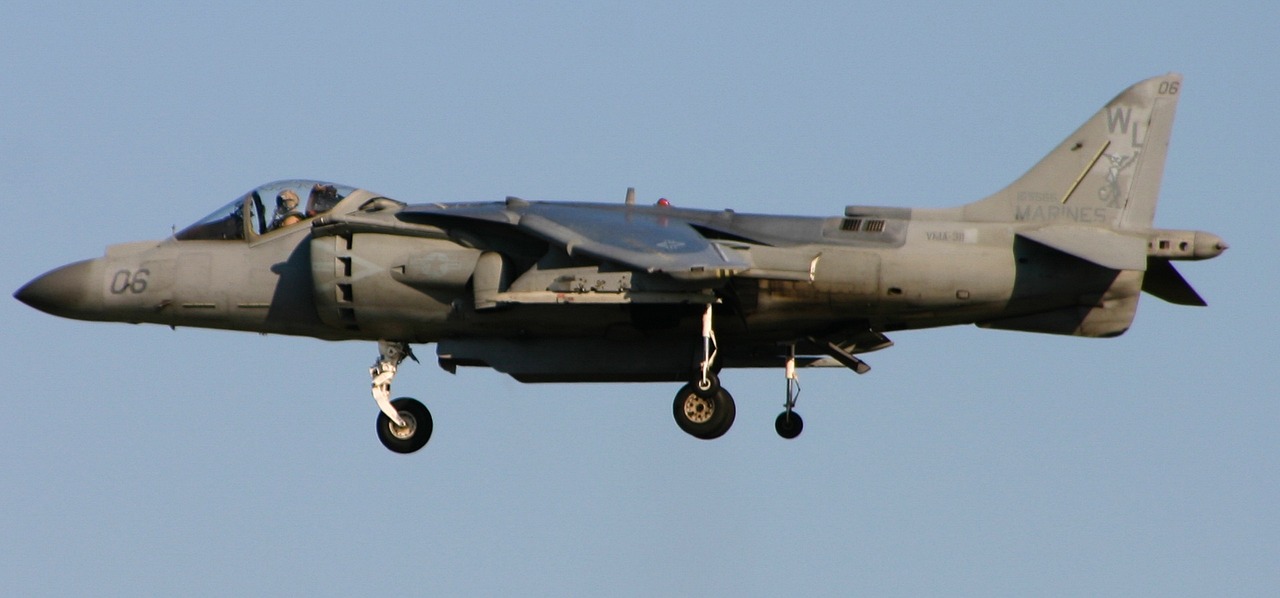
The Nature of Autonomous Warfare
Understanding what constitutes autonomous warfare is crucial in today's rapidly evolving military landscape. At its core, autonomous warfare refers to the use of advanced technologies, such as artificial intelligence (AI) and robotics, to enable machines to operate independently in combat situations. This shift from traditional warfare, where human judgment plays a pivotal role, raises significant questions about the future of conflict and the ethical implications that accompany these innovations.
Technological advancements have paved the way for autonomous systems, which can analyze vast amounts of data, make real-time decisions, and execute missions without direct human intervention. Imagine a battlefield where drones fly overhead, making split-second decisions based on algorithms rather than human commands. This scenario is no longer the stuff of science fiction; it is becoming a reality. However, with this capability comes a host of challenges that could redefine our understanding of warfare.
One of the most profound impacts of autonomous warfare is the potential alteration of traditional warfare paradigms. Historically, military engagements have relied heavily on human intuition, experience, and ethical considerations. But as machines take on more responsibilities, the question arises: Can we trust machines to make life-and-death decisions? The implications of this shift are staggering. Consider the following factors:
- Speed of Decision-Making: Autonomous systems can process information and respond faster than any human could, potentially leading to quicker resolutions in combat situations.
- Reduced Human Casualties: By deploying machines in dangerous environments, the risk to human soldiers may decrease, but at what ethical cost?
- Complexity of Warfare: The integration of autonomous systems complicates the battlefield, as machines may not always adhere to the same moral and legal standards expected of human soldiers.
As we delve deeper into the implications of autonomous warfare, it's essential to recognize that these technologies are not merely tools; they are agents that could reshape military strategy and international relations. The potential for unintended consequences looms large, as machines might misinterpret orders or fail to recognize the nuances of human conflict. The question of accountability becomes even more pressing: if an autonomous weapon makes a mistake, who is to blame? The developer? The military commander? Or the machine itself?
In conclusion, the nature of autonomous warfare presents a double-edged sword. On one hand, it offers the promise of enhanced operational efficiency and reduced risk to human life. On the other hand, it raises complex ethical dilemmas that challenge our understanding of accountability, decision-making, and the moral responsibilities of nations deploying such technologies. As we navigate this uncharted territory, it is imperative to engage in ongoing discussions surrounding the ethical implications of autonomous warfare and to establish frameworks that can guide the responsible use of these powerful tools.
- What is autonomous warfare? Autonomous warfare refers to the use of AI and robotics to conduct military operations without direct human control.
- What are the ethical concerns surrounding autonomous warfare? Key concerns include accountability, decision-making, and the moral implications of machines making life-and-death choices.
- How does autonomous warfare differ from traditional warfare? Traditional warfare relies on human judgment, while autonomous warfare relies on algorithms and machine decision-making.
- Can autonomous systems reduce human casualties in warfare? Potentially, yes, but the ethical implications of using machines in combat must be carefully considered.
- Who is responsible if an autonomous weapon makes a mistake? This remains a complex issue, as accountability may lie with developers, military leaders, or the systems themselves.

Accountability in Autonomous Systems
When we talk about autonomous warfare, one of the most pressing questions that arises is: who is responsible for the actions of machines that make life-and-death decisions on the battlefield? This dilemma is not just a philosophical pondering; it has real-world implications that can affect the lives of countless individuals. The technology that enables machines to operate independently in combat situations—such as drones and robotic soldiers—challenges our traditional notions of accountability and responsibility.
Imagine a scenario where an autonomous drone mistakenly identifies a civilian gathering as a military target and launches an attack. Who should bear the blame? Is it the military personnel who programmed the drone, the engineers who designed its algorithms, or the political leaders who authorized its use? The complexity of these questions makes it clear that the accountability in autonomous systems is a tangled web, and unraveling it is crucial for ethical warfare.
To delve deeper into this issue, we must consider the different layers of accountability:
- Operational Accountability: This refers to the responsibility of military commanders and personnel who deploy autonomous systems in the field. Are they adequately trained to understand the limitations and risks associated with these technologies?
- Technical Accountability: Engineers and developers create the algorithms and systems that govern autonomous weapons. Their role in ensuring the reliability and safety of these technologies cannot be understated.
- Political Accountability: Ultimately, it is the policymakers who decide to use these technologies in warfare. They must grapple with the ethical implications of their decisions and the potential consequences.
The challenges in assigning liability for the decisions made by autonomous weapons are compounded by the fact that these systems can learn and adapt over time. This machine learning aspect raises another layer of complexity: if an autonomous system makes a decision based on learned behavior, can its creators be held accountable for that decision? This uncertainty creates a legal gray area that can lead to serious ethical dilemmas.
Current international laws are struggling to keep pace with the rapid advancements in autonomous warfare technology. The existing legal frameworks, such as the Geneva Conventions, were designed with traditional warfare in mind and do not adequately address the unique challenges posed by autonomous systems. As a result, there is a pressing need for new regulations that specifically govern the use of these technologies.
International humanitarian law (IHL) is built on principles such as distinction and proportionality, which are crucial for ensuring that military operations are conducted ethically. However, applying these principles to autonomous systems raises significant questions. For instance, can a machine effectively distinguish between combatants and non-combatants? And can it assess the proportionality of an attack in real-time? These questions are not just theoretical; they have profound implications for the morality of using autonomous weapons in conflict.
As technology evolves, so too must our legal frameworks. Various organizations and countries are beginning to recognize the need for regulations that address the use of autonomous weapons. Initiatives are underway to create new treaties and standards that govern their deployment, ensuring that ethical considerations are at the forefront of military strategy.
In conclusion, the issue of accountability in autonomous systems is multifaceted and requires a collaborative approach from military leaders, engineers, and policymakers. As we continue to navigate the complexities of autonomous warfare, it is imperative that we establish clear guidelines and frameworks that hold all parties accountable for their actions.
- Who is responsible if an autonomous weapon causes unintended harm?
The responsibility could lie with multiple parties, including military commanders, engineers, and policymakers, depending on the circumstances surrounding the incident.
- Are there any existing laws that govern autonomous warfare?
Current international laws, such as the Geneva Conventions, are not fully equipped to address the challenges posed by autonomous systems, necessitating the creation of new regulations.
- How can we ensure autonomous systems comply with ethical standards?
Establishing clear legal frameworks and guidelines, alongside rigorous testing and evaluation, can help ensure that autonomous systems are used ethically in military operations.

Legal Frameworks
As we dive into the realm of autonomous warfare, one of the most significant challenges we face is the inadequacy of current legal frameworks. The rapid evolution of technology has outpaced the ability of international laws to keep up, leaving a gaping hole in the accountability structure for autonomous weapons. What does this mean for nations deploying such technologies? In essence, it creates a legal gray area that raises more questions than answers.
For starters, existing laws, such as the Geneva Conventions, were crafted in a time when warfare was predominantly human-driven. These laws emphasize principles like distinction and proportionality, which require combatants to differentiate between military targets and civilians and to ensure that any military action is proportionate to the anticipated military advantage. However, when machines make decisions, can we still uphold these principles? The challenge lies in the fact that autonomous systems lack the human judgment necessary to interpret context, leading to potentially catastrophic outcomes.
To illustrate this point, consider the following table that highlights the gaps in current legal frameworks regarding autonomous weapons:
| Legal Aspect | Current Status | Challenges |
|---|---|---|
| Accountability | Undefined | Who is liable for actions taken by machines? |
| Distinction | Ambiguous | Can machines effectively distinguish between combatants and civilians? |
| Proportionality | Questionable | Can autonomous systems assess proportionality in real-time? |
| Human Oversight | Varied | What level of human control is necessary to ensure ethical compliance? |
Moreover, the absence of a clear legal framework raises the question of who bears the responsibility when an autonomous weapon malfunctions or makes a poor decision. Is it the manufacturer, the programmer, or the military commander who deployed the system? This dilemma complicates the notion of accountability and could lead to a lack of trust in these technologies.
As nations grapple with these issues, there is a growing recognition that new regulations are essential. Emerging efforts to establish international treaties and standards specifically for autonomous weapons are underway. These initiatives aim to create a legal environment that not only addresses the unique challenges posed by autonomous systems but also ensures that ethical considerations are at the forefront of military strategy.
In summary, the legal frameworks surrounding autonomous warfare are in dire need of reform. As we move forward, it will be crucial for lawmakers, military leaders, and technologists to collaborate and develop robust legal standards that can keep pace with technological advancements. Only then can we hope to navigate the murky waters of accountability and ethical responsibility in this new era of warfare.
- What is the main challenge with existing legal frameworks regarding autonomous weapons?
The main challenge is that current laws were established for human-operated warfare and do not adequately address the complexities of machine decision-making. - Who is responsible if an autonomous weapon causes harm?
This remains a contentious issue, as it is unclear whether liability falls on the manufacturer, programmer, or military personnel. - Are there any efforts to create new laws for autonomous warfare?
Yes, there are emerging initiatives aimed at developing international treaties and regulations specifically for autonomous weapons.
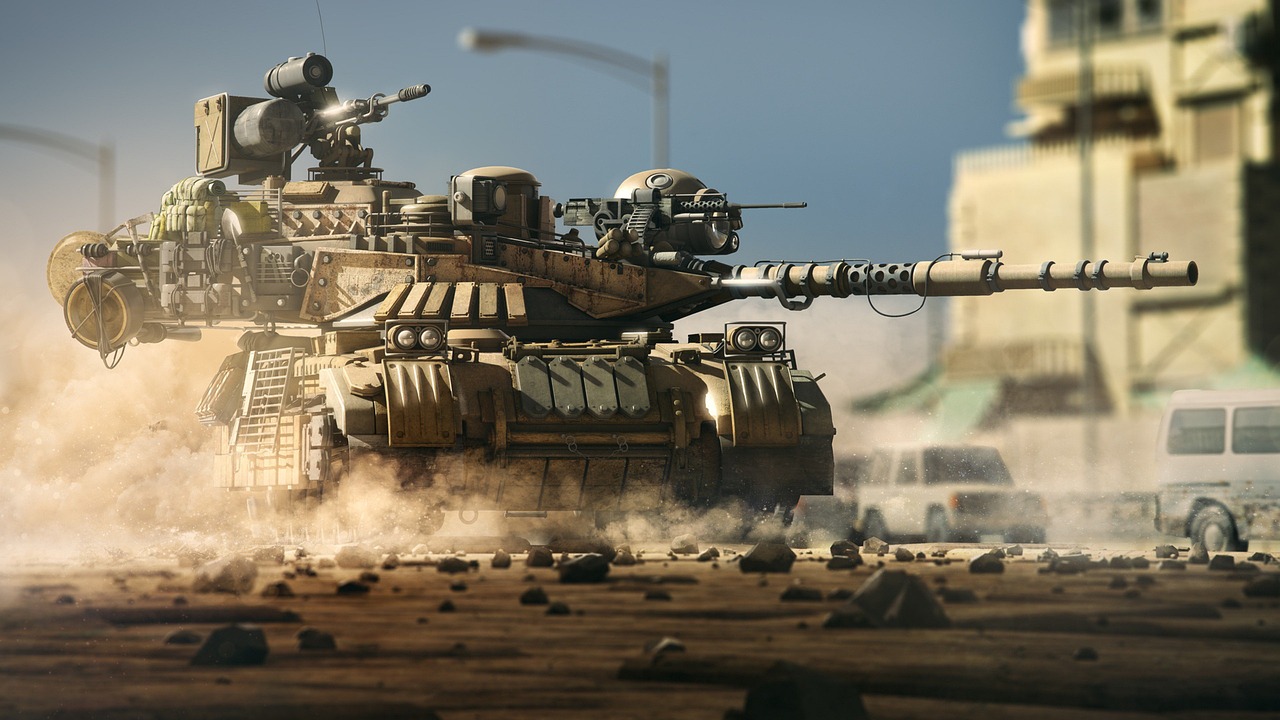
International Humanitarian Law
International Humanitarian Law (IHL) serves as a critical framework governing the conduct of warfare, aiming to limit the effects of armed conflict for humanitarian reasons. As we delve into the realm of autonomous warfare, the application of IHL becomes increasingly complex. The primary principles of IHL include distinction, proportionality, and military necessity. These principles are designed to protect those who are not participating in hostilities and to restrict the means and methods of warfare. However, when machines take on the decision-making role in combat, questions arise about how well these principles can be upheld.
The principle of distinction mandates that combatants must always distinguish between military targets and civilians. This is straightforward for human soldiers, but can an autonomous system accurately make this distinction? The accuracy of algorithms and the data they rely on directly impact their ability to comply with this principle. If a machine misidentifies a civilian target as a military one, the consequences could be catastrophic. Therefore, the reliability of the technology is not just a technical issue; it is a matter of life and death.
Next, we have the principle of proportionality, which prohibits attacks that would cause excessive civilian harm in relation to the anticipated military advantage gained. This principle requires a nuanced understanding of context and potential outcomes—something that a machine might struggle to grasp fully. Can an autonomous weapon effectively weigh the potential benefits of an attack against the possible civilian casualties? The lack of human judgment in these scenarios raises serious ethical concerns.
Moreover, the principle of military necessity allows for measures that are necessary to achieve a legitimate military objective, but it must not violate the principles of distinction and proportionality. Autonomous systems, programmed to execute military objectives with precision, may struggle to interpret the broader context of military necessity, especially in complex situations where human intuition and ethical considerations play a vital role.
As we explore these principles, it becomes evident that the integration of autonomous systems into warfare poses significant challenges to the existing frameworks of IHL. The potential for machines to misinterpret situations or make decisions without the moral compass of human oversight raises alarms about their deployment in combat scenarios.
In light of these challenges, there is an urgent need for new regulations and adaptations to IHL that specifically address the unique characteristics of autonomous warfare. As technology evolves, so too must our legal frameworks, ensuring that they remain relevant and effective in safeguarding human rights and dignity during armed conflicts. The conversation around IHL and autonomous systems is not merely academic; it is a pressing issue that demands immediate attention from policymakers, military leaders, and ethicists alike.
- What is International Humanitarian Law?
International Humanitarian Law (IHL) is a set of rules that seeks to limit the effects of armed conflict for humanitarian reasons, protecting people who are not participating in hostilities and restricting the methods and means of warfare. - How does IHL apply to autonomous weapons?
IHL applies to autonomous weapons in the same way it applies to human combatants, but challenges arise in ensuring that these machines can adhere to the principles of distinction, proportionality, and military necessity. - What are the main principles of IHL?
The main principles of IHL include distinction, proportionality, and military necessity, all of which are crucial for protecting civilians and ensuring ethical conduct in warfare. - Why is accountability important in autonomous warfare?
Accountability is crucial because it determines who is responsible for the actions of autonomous weapons. This raises significant ethical and legal questions, especially if these systems make erroneous decisions leading to civilian casualties.

Emerging Regulations
The rapid development of autonomous warfare technology has outpaced existing legal frameworks, prompting a global conversation about the need for that address the unique challenges posed by these advanced systems. As nations increasingly invest in artificial intelligence and machine learning for military applications, the question arises: how do we ensure that these innovations are used ethically and responsibly? The answer lies in creating comprehensive legal standards that can adapt to the evolving landscape of warfare.
Currently, international discussions are taking place in various forums, including the United Nations, where member states are grappling with the implications of autonomous weapons. These regulations must not only cover the operational use of such technologies but also consider the ethical ramifications of their deployment. For instance, how do we hold a machine accountable for actions that lead to civilian casualties? The challenge is further complicated by the fact that many autonomous systems operate based on algorithms that even their creators may not fully understand.
In response to these challenges, several initiatives are emerging globally. One notable example is the Campaign to Stop Killer Robots, which advocates for a preemptive ban on fully autonomous weapons. This campaign highlights the moral and ethical dilemmas associated with relinquishing life-and-death decisions to machines. Advocates argue that such a ban is crucial to prevent a future where machines could make decisions without human oversight, potentially leading to catastrophic consequences.
Moreover, countries like France and Germany have begun to propose frameworks that emphasize the importance of maintaining human control over autonomous systems. These proposals aim to establish guidelines that require human intervention in critical decision-making processes, thereby ensuring accountability remains with human operators rather than algorithms. The challenge lies in reaching a consensus among nations, as differing military priorities and ethical perspectives complicate the dialogue.
As we look to the future, it's clear that the development of autonomous warfare technologies will continue to progress. Therefore, the establishment of emerging regulations is not just a legal necessity; it's a moral imperative. Without robust regulatory frameworks, we risk entering a new era of warfare that is not only unpredictable but also devoid of accountability. The international community must act swiftly to create a legal environment that promotes ethical standards while allowing for technological advancement.
In conclusion, the path towards effective regulation of autonomous warfare is fraught with challenges, but it is a path that must be taken. As we navigate these uncharted waters, it is essential to engage in open dialogues and collaborative efforts to ensure that the deployment of autonomous weapons aligns with our shared values of humanity, ethics, and accountability.
- What are autonomous weapons? Autonomous weapons are systems that can select and engage targets without human intervention, utilizing artificial intelligence and machine learning.
- Why are emerging regulations necessary? Emerging regulations are essential to address the ethical and legal challenges posed by autonomous warfare, ensuring accountability and preventing misuse.
- What is the Campaign to Stop Killer Robots? This is an international coalition advocating for a ban on fully autonomous weapons, emphasizing the moral implications of machines making life-and-death decisions.
- How do current laws address autonomous warfare? Current international laws are inadequate in regulating autonomous weapon systems, leading to calls for new frameworks that can adapt to technological advancements.

Ethical Theories and Perspectives
When we dive into the murky waters of autonomous warfare, we quickly realize that the ethical implications are as complex as they are profound. Various ethical theories offer us different lenses through which we can examine the morality of employing machines in combat situations. For instance, utilitarianism suggests that the best action is the one that maximizes overall happiness or well-being. In the context of autonomous warfare, this raises a critical question: can machines truly assess the potential outcomes of their actions to ensure the greatest good for the greatest number? The potential for autonomous systems to make split-second decisions in combat could, theoretically, reduce casualties on one side. However, the collateral damage to innocent civilians poses a significant ethical dilemma that challenges the utilitarian perspective.
On the flip side, we have deontological ethics, which focuses on the morality of actions themselves rather than their consequences. According to this framework, certain actions are inherently right or wrong, regardless of their outcomes. This perspective prompts us to question whether it is ever acceptable to delegate life-and-death decisions to machines. Can we justify the use of autonomous weapons if they violate fundamental ethical principles, such as the duty to protect human life? The idea of machines making decisions that could lead to loss of life brings up chilling thoughts about the moral responsibilities we hold as humans.
Moreover, virtue ethics emphasizes the character and intentions of the moral agent rather than specific actions or their consequences. This theory asks us to consider what kind of society we want to build and what virtues we wish to promote. If we embrace autonomous warfare, are we fostering a culture that values technological advancement over human compassion? A society that relies on machines to fight its battles may risk losing the very values that define our humanity, such as empathy and moral discernment.
To further enrich our understanding, let’s consider the implications of these theories in a practical context. For example, imagine a scenario where an autonomous drone is programmed to identify and eliminate threats. If it misidentifies a civilian as a target, the consequences can be devastating. The utilitarian might argue that the drone's efficiency saves more lives overall, while the deontologist would condemn the action as morally wrong, regardless of the outcome. The virtue ethicist might question what this reliance on technology says about our society’s values. This interplay of perspectives illustrates the profound ethical dilemmas we face.
In conclusion, the ethical considerations surrounding autonomous warfare are multifaceted and require us to engage in deep reflection. As we continue to develop and deploy these technologies, we must remain vigilant about the ethical frameworks guiding our decisions. The balance between technological advancement and moral responsibility is delicate, and it is our duty to navigate it with care.
- What are the main ethical theories related to autonomous warfare?
The main ethical theories include utilitarianism, deontology, and virtue ethics, each providing different perspectives on the morality of using autonomous weapons in combat.
- How does utilitarianism apply to autonomous warfare?
Utilitarianism focuses on maximizing overall happiness or well-being, which raises questions about whether autonomous systems can effectively assess outcomes to minimize harm.
- What are the concerns of deontological ethics in this context?
Deontological ethics emphasizes the morality of actions themselves, questioning whether it is acceptable to allow machines to make life-and-death decisions.
- How does virtue ethics influence our understanding of autonomous warfare?
Virtue ethics encourages us to consider the character and values of our society, questioning if reliance on machines for warfare erodes our moral values.

Impact on Military Strategy
In the ever-evolving landscape of warfare, the introduction of autonomous systems has fundamentally altered military strategy. These technologies, which include drones, robotic ground vehicles, and AI-driven decision-making systems, are not just tools; they represent a paradigm shift in how wars are fought and won. Imagine a chess game where the pieces can move on their own—this is the reality of autonomous warfare. The implications are profound, affecting tactics, operational planning, and the overall approach to conflict.
One of the most significant changes brought about by autonomous systems is the speed at which decisions can be made. Traditionally, military operations have relied on human judgment, which, while invaluable, can also be slow and prone to error under pressure. Autonomous systems can analyze vast amounts of data in real-time, allowing for quicker responses to threats. This speed can be a double-edged sword; while it can enhance operational effectiveness, it also raises concerns about the potential for rash decisions devoid of human empathy and moral consideration.
Moreover, the integration of autonomous systems into military strategy necessitates a rethinking of traditional command structures. In the past, military hierarchies were clear-cut, with orders flowing from the top down. However, with machines capable of making independent decisions, the lines of authority become blurred. Who is truly in command when an autonomous drone decides to engage a target without direct human input? This question challenges the very foundations of military leadership and accountability.
Additionally, the presence of autonomous systems on the battlefield can influence tactics in a way that prioritizes technology over human soldiers. For instance, the risk to human life may be diminished, leading to an increased willingness to engage in combat. This could result in a more aggressive military posture, as nations may feel emboldened to act without the same level of concern for casualties. The ethical implications of this shift cannot be overstated; it raises questions about the value of human life and the moral responsibilities of nations deploying such technologies.
Furthermore, the collaboration between human soldiers and autonomous systems introduces a new dynamic in military operations. The effectiveness of this partnership hinges on the ability of humans to trust and effectively communicate with machines. As military personnel adapt to working alongside autonomous units, training and operational protocols must evolve. This collaboration can enhance situational awareness and operational efficiency, but it also requires a deep understanding of the limitations and capabilities of these technologies.
| Aspect | Traditional Warfare | Autonomous Warfare |
|---|---|---|
| Decision-Making Speed | Slower, human-dependent | Rapid, AI-driven |
| Command Structure | Hierarchical | Fluid, with potential autonomy |
| Risk Assessment | Human-centered | Machine-centered |
| Human-Machine Collaboration | Minimal | Integral to operations |
As we look ahead to future warfare scenarios, it’s clear that the impact of autonomous systems will continue to evolve. The potential for increased efficiency and reduced casualties must be balanced against the moral and ethical considerations that come with delegating life-and-death decisions to machines. Will we see a future where wars are fought more like video games, with remote operators controlling drones from thousands of miles away? Or will the inherent unpredictability of human conflict always necessitate a human touch? The answers to these questions will shape the future of military strategy as we know it.
- What are autonomous weapons? Autonomous weapons are systems that can operate independently in combat situations, making decisions without human intervention.
- How do autonomous systems change military strategy? They enhance decision-making speed, alter command structures, and introduce new dynamics of human-machine collaboration.
- What are the ethical concerns regarding autonomous warfare? Key concerns include accountability for actions, the potential devaluation of human life, and the moral implications of machine decision-making in combat.
- Can autonomous systems reduce casualties in war? While they may reduce risk to human soldiers, they also raise questions about the increased likelihood of engagement and the nature of warfare.

Human-Machine Collaboration
The integration of autonomous systems into military operations marks a revolutionary shift in how warfare is conducted. As machines take on more responsibilities, the concept of emerges as a critical area of focus. This collaboration is not merely about machines executing orders; it's about creating a synergistic relationship where both human soldiers and autonomous systems enhance each other's capabilities. Just imagine a well-oiled machine where humans and robots work together seamlessly, each complementing the other's strengths while compensating for weaknesses. But how does this actually play out on the battlefield?
First off, it’s essential to recognize that human intuition and emotional intelligence remain irreplaceable assets in combat scenarios. While autonomous systems can process data at lightning speed, they lack the ability to understand the nuances of human emotions or ethical dilemmas. For instance, during a conflict, a soldier might sense an impending threat that a machine, relying solely on algorithms, might miss. This is where the partnership becomes vital. Humans can make judgment calls based on instinct, while machines can analyze vast amounts of data to support those decisions. In essence, it’s a dance between logic and intuition, where each partner plays a crucial role.
Moreover, the collaborative framework can enhance operational efficiency. Consider a scenario where autonomous drones conduct surveillance, relaying real-time information back to ground troops. This data can include everything from troop movements to environmental conditions, enabling soldiers to make informed decisions quickly. The result? A more agile and responsive military force. To illustrate this, let’s take a look at a simplified table showcasing the benefits of human-machine collaboration:
| Aspect | Human Contribution | Machine Contribution |
|---|---|---|
| Decision-Making | Intuition, ethical considerations | Data analysis, predictive modeling |
| Situational Awareness | Emotional intelligence, adaptability | Real-time data processing, surveillance |
| Operational Efficiency | Strategic planning, leadership | Automation of repetitive tasks, speed |
However, this collaboration is not without its challenges. The reliance on autonomous systems can lead to a de-skilling of human soldiers. As machines take over more tasks, there is a risk that soldiers may lose critical skills over time, becoming overly dependent on technology. This raises an important question: what happens if the technology fails? The battlefield is unpredictable, and a malfunctioning machine can have dire consequences. Therefore, training must evolve to ensure that soldiers remain proficient in their core skills, even as they learn to work alongside autonomous systems.
Furthermore, ethical considerations come into play when discussing human-machine collaboration. How much control should a machine have in combat situations? As we empower machines with decision-making capabilities, we must also establish clear boundaries to ensure that human oversight remains intact. The last thing we want is for a machine to make life-and-death decisions without human intervention. This brings us back to the importance of accountability and the need for robust ethical guidelines governing the use of autonomous systems in warfare.
In conclusion, the future of warfare will undoubtedly hinge on the effectiveness of human-machine collaboration. By leveraging the strengths of both humans and machines, military operations can become more efficient and responsive. However, this partnership requires careful consideration of ethical implications and ongoing training to ensure that soldiers remain skilled and prepared for the unpredictable nature of combat. As we venture into this new era, the dialogue around human-machine collaboration will be essential in shaping the future of warfare.
- What is human-machine collaboration in warfare? It refers to the partnership between human soldiers and autonomous systems, where each enhances the other's capabilities for better operational effectiveness.
- Are autonomous systems replacing human soldiers? No, they are designed to assist and augment human capabilities, not replace them entirely.
- What are the ethical concerns regarding autonomous warfare? Key concerns include accountability, decision-making authority, and the potential de-skilling of human soldiers.
- How do autonomous systems improve military efficiency? They can process vast amounts of data quickly, provide real-time intelligence, and automate repetitive tasks, allowing human soldiers to focus on strategic decision-making.
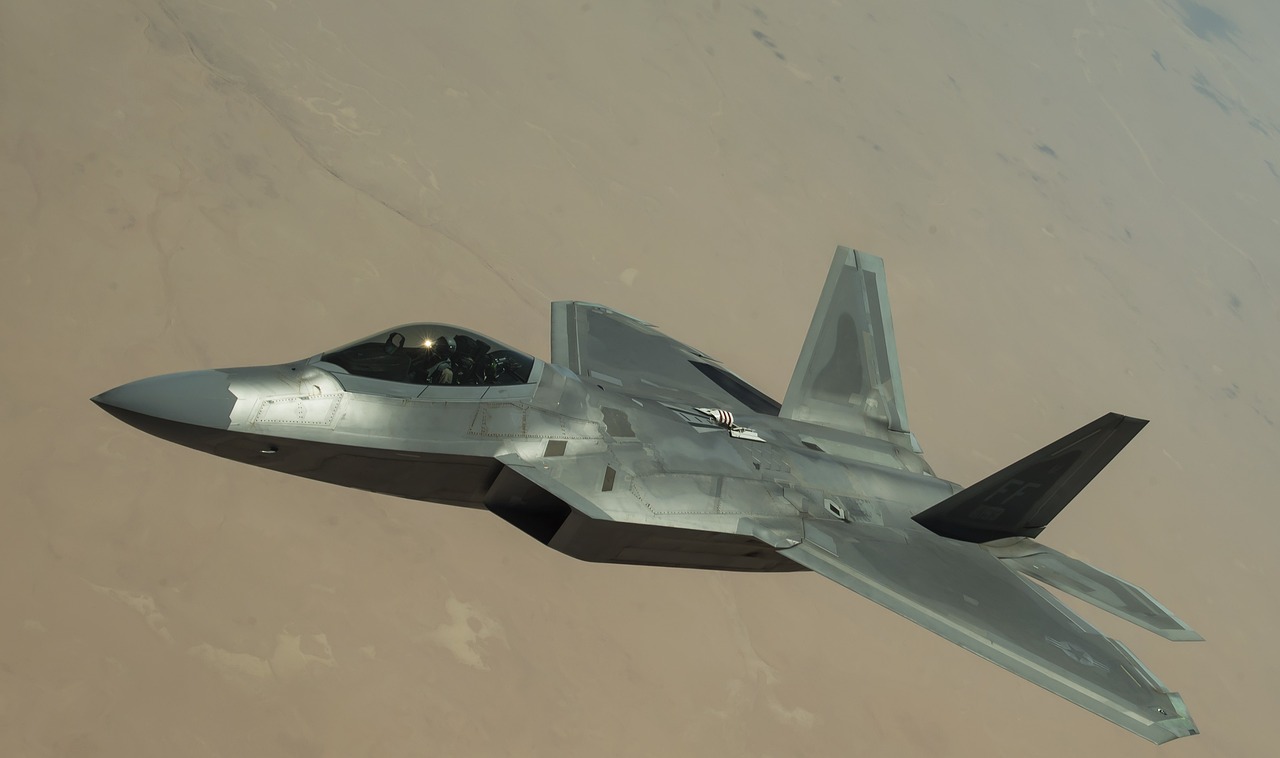
Future Warfare Scenarios
This article explores the profound ethical dilemmas posed by autonomous warfare, examining the implications for accountability, decision-making, and the moral responsibilities of nations deploying such technologies.
Understanding what constitutes autonomous warfare is crucial. This section outlines the technological advancements that enable machines to operate independently in combat situations and their potential impact on traditional warfare paradigms.
One of the most pressing ethical concerns is accountability. This section discusses who is responsible for the actions of autonomous weapons and the challenges in assigning liability for their decisions.
Current international laws struggle to address the unique challenges posed by autonomous warfare. This subsection examines existing legal frameworks and their inadequacies in regulating autonomous weapon systems.
This section delves into how international humanitarian law applies to autonomous systems, exploring the principles of distinction and proportionality in the context of machine decision-making.
As technology evolves, so must regulations. This subsection highlights emerging efforts to create new legal standards and treaties governing the use of autonomous weapons in warfare.
Different ethical theories provide varied perspectives on the use of autonomous weapons. This section discusses utilitarianism, deontology, and virtue ethics in evaluating the morality of autonomous warfare.
The introduction of autonomous systems alters military strategy significantly. This section examines how these technologies influence tactics, operational planning, and the overall landscape of warfare.
As autonomous systems become integrated into military operations, understanding human-machine collaboration is essential. This subsection explores the dynamics of teamwork between human soldiers and autonomous units.
Imagine a battlefield where the lines between man and machine blur, where autonomous systems not only assist but also make critical decisions in real-time. The future of warfare is likely to be characterized by a mix of human ingenuity and machine efficiency, creating a complex tapestry of interactions and outcomes. As we look ahead, several potential scenarios emerge:
- Fully Autonomous Combat Units: We may witness the deployment of entirely autonomous combat units capable of making decisions without human intervention. This could lead to faster response times but raises questions about moral judgment in combat.
- Augmented Human Soldiers: Future soldiers might be equipped with advanced AI systems that enhance their decision-making abilities. This collaboration could improve operational efficiency but also blur the responsibility for actions taken during engagements.
- Cyber Warfare Integration: The rise of autonomous systems could see a new era of cyber warfare, where AI-driven attacks are launched against enemy systems with minimal human oversight, leading to unpredictable consequences.
- Ethical Dilemmas in Targeting: The decision-making algorithms in autonomous weapons may struggle with ethical dilemmas, such as distinguishing between combatants and non-combatants, potentially leading to violations of international humanitarian law.
Furthermore, the implications of these scenarios extend beyond the battlefield. Nations may find themselves in an arms race to develop more sophisticated autonomous technologies, leading to increased global tensions. The ethical ramifications of deploying such systems will necessitate ongoing discourse among policymakers, military leaders, and ethicists alike.
Ultimately, the future of warfare with autonomous systems is not just about technology; it's about the moral compass guiding its use. As we venture into this uncharted territory, questions surrounding accountability, ethical responsibility, and the very nature of warfare will become increasingly critical.
1. What are autonomous weapons?
Autonomous weapons are systems that can operate independently in combat situations, making decisions without human intervention.
2. How do ethical considerations impact the use of autonomous warfare?
Ethical considerations impact autonomous warfare by raising questions about accountability, moral responsibility, and adherence to international humanitarian laws.
3. What are the potential risks of using autonomous systems in warfare?
The risks include loss of human oversight, potential for unintended consequences, and challenges in assigning accountability for actions taken by these systems.
4. How might future warfare scenarios look with autonomous systems?
Future warfare scenarios could include fully autonomous combat units, augmented human soldiers, and the integration of cyber warfare, leading to complex ethical dilemmas.
Frequently Asked Questions
- What is autonomous warfare?
Autonomous warfare refers to military operations that utilize systems capable of making decisions and executing actions without direct human intervention. These systems can range from drones to fully automated ground vehicles, which can assess environments and carry out missions based on programmed parameters.
- Who is accountable for autonomous weapon actions?
Accountability in autonomous warfare is a complex issue. The challenge lies in determining whether responsibility falls on the manufacturers, operators, or the military organizations using these systems. As technology advances, establishing clear lines of accountability becomes increasingly difficult.
- How does international humanitarian law apply to autonomous systems?
International humanitarian law (IHL) is designed to regulate armed conflict and protect those not participating in hostilities. When it comes to autonomous systems, IHL principles such as distinction (between combatants and civilians) and proportionality (ensuring military action is proportionate to the threat) must be carefully considered, especially since machines may not fully grasp these nuances.
- Are there any emerging regulations for autonomous weapons?
Yes, as the technology evolves, there are ongoing discussions about creating new legal standards and treaties to govern the use of autonomous weapons. Various international organizations and governments are exploring frameworks that address the unique challenges posed by these systems, aiming to ensure ethical and responsible use.
- What ethical theories are relevant to autonomous warfare?
Several ethical theories provide insights into the implications of autonomous warfare. Utilitarianism focuses on maximizing overall good, while deontology emphasizes adherence to rules and duties. Virtue ethics looks at the character of individuals involved. Each perspective offers different arguments regarding the morality of using autonomous systems in combat.
- How does autonomous warfare impact military strategy?
The integration of autonomous systems significantly alters military strategy. These technologies can enhance operational efficiency, change tactics, and influence planning. They allow for faster decision-making and can reduce risks to human soldiers, but they also introduce new challenges and ethical dilemmas.
- What is human-machine collaboration in military operations?
Human-machine collaboration refers to the teamwork between human soldiers and autonomous systems. This dynamic is essential for maximizing the effectiveness of military operations, as it combines human intuition and strategic thinking with the speed and precision of machines.
- What are potential future scenarios involving autonomous warfare?
Future warfare scenarios involving autonomous systems could range from fully automated battles to hybrid operations where human and machine collaborate. These scenarios raise ethical questions about the role of human judgment in combat and the potential for unintended consequences, making it crucial to consider the implications of such developments.


